Over the last ten months, a minimum of nine Nigerian states-including Ekiti, Enugu, Rivers, and Kano-have undergone significant cabinet reshuffles, frequently replacing or reassigning key commissioners across various ministries. While such changes are a normal feature of democratic governance, the sheer frequency and unpredictability of these moves expose a deeper structural fragility that jeopardizes Nigeria’s developmental goals, particularly its ambition to cultivate a technology-driven and AI-powered economy.
When commissioners responsible for critical innovation or digital economy portfolios are swapped mid-term, ongoing initiatives often stall, get abandoned, or are reoriented by successors lacking institutional memory. This leads to a recurring cycle of policy disruptions and lost momentum, severely hindering Nigeria’s ability to establish a unified digital economy and realize its AI potential.
Recurring instability undermining progress
From December 2024 through October 2025, states such as Ekiti, Enugu, Ebonyi, Oyo, Kano, Abia, Kaduna, and Rivers experienced cabinet overhauls impacting ministries pivotal to their innovation and infrastructure strategies-ranging from Energy and ICT to Trade, Housing, and Public Works.
Take Ekiti State as a case in point. The Ekiti Knowledge Zone (EKZ), envisioned as a cutting-edge innovation hub akin to a Nigerian version of Boston’s Route 128 tech corridor, has been mired in delays for over a decade. Designed to be a nucleus for research, talent cultivation, and tech startups, the project has suffered from political discontinuity since its inception.
Akin Oyebode, who initially laid the financial groundwork as Commissioner for Finance in 2013, was succeeded by Seun Fakuade, Commissioner for Innovation, Science, and Digital Economy, who advanced the planning phase by securing partnerships and operational frameworks. However, Fakuade’s removal in a broad cabinet reshuffle in August 2025 has cast doubt on the project’s future, pushing its implementation back to at least 2026. Notably, two months later, the governor has yet to appoint a replacement commissioner for the ministry.
Similar narratives unfold elsewhere. Ebonyi’s University of ICT in Oferekpe, once a beacon for digital education, has slowed due to bureaucratic inertia and shifting priorities. Niger State’s aspirations for a digital city, initiated in 2023 with the appointment of its first Commissioner of Communications Technology and Digital Economy, have stalled amid unresolved public-private partnership challenges, infrastructure deficits, and the September 2025 cabinet reshuffle that ousted the commissioner. Even ambitious federal projects, such as the proposed $10 billion innovation cities in Katsina and other states, remain largely conceptual.
Political turbulence clashes with tech ambitions
Establishing a thriving AI ecosystem demands sustained policy consistency, capable leadership, and institutional knowledge-elements that Nigeria’s political framework frequently undermines.
Reflecting on his tenure, Fakuade remarked, “Our political system doesn’t select the most capable or visionary leaders; it rewards corruption and loyalty. Until this changes, we’ll continue recycling mediocrity and wondering why progress eludes us.”
This sentiment highlights a systemic disconnect between Nigeria’s political elite and the demands of a digital economy. In many states, appointments to innovation or ICT commissioner roles are driven by political allegiance rather than technical competence. “Out of 36 commissioners for innovation or ICT nationwide,” Fakuade observed, “less than half grasp the essentials-from digital infrastructure to workforce skills and future employment trends.”
The issue extends to governors themselves. “Most don’t comprehend the concept of a digital economy,” he added. “They ask, ‘How does this translate to votes?’ because they fail to see tangible infrastructure.”
Without visionary leadership, Nigeria’s innovation efforts risk becoming fragmented, ambitious on paper but ineffective in execution.
This lack of continuity also hampers progress measurement. Suleiman Isah, the pioneer Commissioner of Communications Technology and Digital Economy, noted that the unpredictability of appointments has led many beneficiaries of government tech initiatives to view them as mere opportunities to claim a share of the “national cake.”
“When we invite people for training, they expect free laptops or ₦10,000 handouts every day,” Isah shared, underscoring the challenges of managing expectations in a volatile political environment.
AI’s growth demands stable foundations
Artificial intelligence flourishes on three pillars: data, infrastructure, and skilled talent-all of which require coherent governance and sustained investment. Unfortunately, Nigeria’s political landscape remains unstable.
Fakuade argues that if every Nigerian state integrated future-ready skills like coding and data literacy into their education systems, the economy could be transformed from the grassroots. “Imagine a million people earning $1,000 monthly through remote work-that’s a $12 billion economy,” he explained. “Yet, this vision is absent from current policy discussions.”
Instead, state governments tend to prioritize visible, short-term projects such as roads and buildings, often neglecting critical digital infrastructure like fiber optic networks, broadband expansion, and tech skills development. “If every governor invested in fiber optics,” Fakuade said, “it would unleash a digital economy with a multiplier effect capable of growing the state’s economy sevenfold.”
However, such progress hinges on political will and coordination-two elements frequently missing in Nigeria’s governance model. “The Minister of Innovation has never convened a meeting with state commissioners of innovation,” he lamented. “How can a coherent AI policy be crafted when those responsible for implementation have never collaborated?”
This lack of federal-state synergy is more than bureaucratic oversight; it poses a strategic threat. AI advancement requires a unified national vision. Without it, Nigeria risks becoming a passive consumer of foreign technologies rather than an active innovator in the global AI arena.
The human toll of political mismanagement
At its heart, this issue transcends governance-it affects millions of Nigerians. Every stalled innovation project represents lost opportunities for young people who could otherwise be earning livelihoods, creating, and innovating within a digital ecosystem.
“When Ekiti State fails to implement its innovation policy, millions suffer due to incompetence,” Fakuade stated candidly. “The digital economy has the power to sustain Nigeria, but without leaders who grasp this, we continue to starve in the midst of plenty.”
His words expose a deeper tragedy: Nigeria’s challenges are not due to a lack of talent, ideas, or even funding, but rather a political system that prioritizes loyalty over merit, short-term optics over sustainable strategies, and control over collaboration.
The imperative for systemic reform
For Nigeria to genuinely embrace an AI-driven future, it must overhaul its political framework. This involves redefining leadership appointment processes, instituting clear performance metrics for commissioners and ministers, and embedding accountability mechanisms for development projects.
Fakuade advocates for a public performance tracking system that evaluates commissioners based on tangible outcomes, holds them accountable, and ensures policy continuity across administrations. “If I’m underperforming, call me out. But if I’m delivering, empower me. Most commissioners aren’t lazy-they simply lack support.”
This approach may be bold, but it is essential. Without political accountability, Nigeria’s digital aspirations will remain trapped in a repetitive cycle of enthusiasm followed by neglect.
As Fakuade succinctly put it: “The digital economy can nourish Nigeria-but only if we stop starving it with poor politics.”


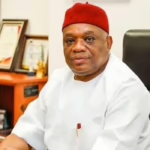


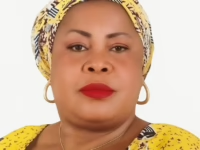



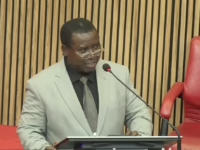

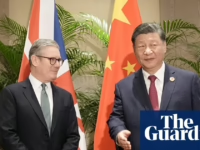



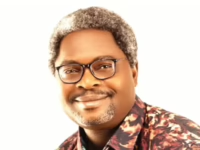
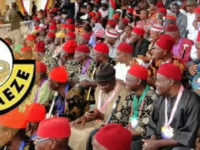




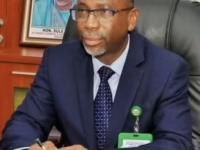

0 Comments